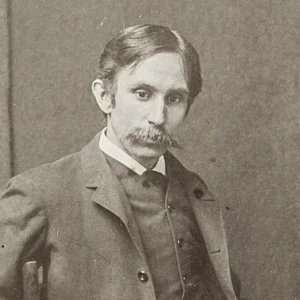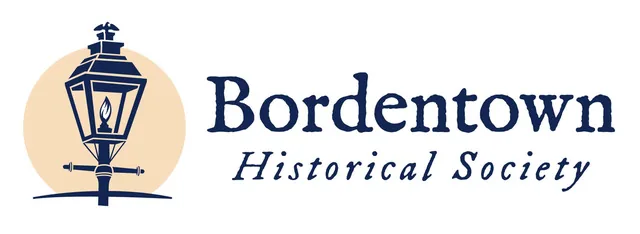
Richard Watson Gilder was born on February 8, 1844 at Bordentown, New Jersey. He was the son of Jane (Nutt) Gilder and the Rev. William Henry Gilder, and educated at his father’s seminary in Flushing, Queens. There he learned to set type and published the St. Thomas Register. Gilder later studied law at Philadelphia.
During the American Civil War, he enlisted in the state’s Emergency Volunteer Militia as a private in Landis’ Philadelphia Battery at the time of the Robert E. Lee’s 1863 invasion of Pennsylvania. After the Confederates were defeated in the Battle of Gettysburg, Gilder and his unit were mustered out in August. The death of his father, while serving as chaplain of the Fortieth New York Volunteers, obliged him to give up the study of the law.
A little later, he became a reporter on the Newark (New Jersey) Advertiser, of which he was later editor. With Newton Crane, he founded the Newark Register. In 1870, he became editor of Hours at Home, a monthly magazine published by Scribner’s. It merged with Scribner’s Monthly, which was edited by J. G. Holland. Gilder became managing editor. When Holland died in 1881, Gilder became editor. In November 1881, the monthly was renamed as The Century Magazine, and Gilder remained its editor until his death. Gilder’s assistant editor at Century was Sophia Bledsoe Herrick.
Gilder took an active interest in all public affairs, especially those which tend towards reform and good government, and was a member of many New York clubs. He was one of the founders of the Society of American Architects, of the Authors’ Club, and of the International Copyright League. He was a founder of the Anti-Spoils League and a member of the American Academy of Arts and Letters. He was a close friend of George MacDonald, Scottish poet, author, and preacher. They collaborated in various ventures such as MacDonald’s American lecture tour in the 1870s. Gilder received the degree of LL.D. from Dickinson College in 1883.
Gilder was a member of the Simplified Spelling Board. He was a leader in the organization of the Citizens’ Union, a founder and the first president of the Kindergarten Association, and of the New York Association for the Blind. Gilder was chairman of the first Tenement House Commission in New York City. During his service on the commission, he arranged to be called whenever there was a fire in a tenement house, and at all hours of the night he risked his health and his life itself to see the perils besetting the dwellers of the tenements, in order to make wise recommendations as to legislation that would minimize these perils.
